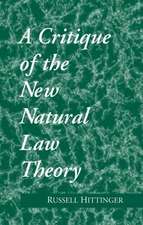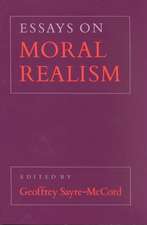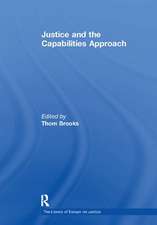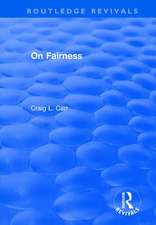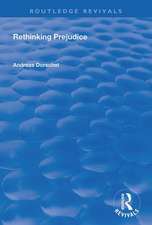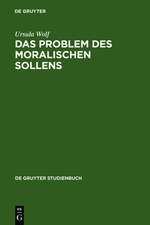Grounded Ethics: The Empirical Bases of Normative Judgements
Editat de Max Hocutten Limba Engleză Paperback – 5 feb 2018
Hocutt begins with an empiricist analysis of normative judgments. Following B.F. Skinner, he asserts that we call good what reinforces our desires, and that we call right or just what we desire to reinforce. Consequently, desire is the immediate measure of both goodness and justice. Acknowledging that goodness is relative to individual preferences, and justice is relative to social norms, Hocutt denies that goodness is a matter of personal opinion and that every society's institutions are as good as every other's. Instead, he says, the conduct of individuals and the customs of societies must ultimately be evaluated by how well they serve biologically based needs. These must be discovered empirically, because they cannot be known a priori.
In support of this analysis, Hocutt challenges rationalist belief, that normative concepts cannot be defined in empirical terms because they are rooted in divine law or ideals of pure reason. Against this view, Hocutt argues that if the moral law exists only as an ideal, it is not binding in the same sense as the empirically known laws and moralities of actual societies. He also points out that rationalist intuitions are best understood as expressions of animal instinct, socially conditioned prejudice, and personal preference. In addition, he offers extensive critiques of major philosophers, both ancient and modern, who hold contrary views.
All of this is meant to show that there is no escaping the empirical: A sensible ethics must be built on observable facts; it cannot be pulled from a vague but pious rationalist sky. Hocutt's demonstration of this thesis will interest philosophers, behavioral biologists, sociologists and ethicists.
Preț: 190.88 lei
Preț vechi: 245.88 lei
-22% Nou
Puncte Express: 286
Preț estimativ în valută:
36.53€ • 39.67$ • 30.68£
36.53€ • 39.67$ • 30.68£
Carte tipărită la comandă
Livrare economică 23 aprilie-07 mai
Preluare comenzi: 021 569.72.76
Specificații
ISBN-13: 9781138510494
ISBN-10: 1138510491
Pagini: 364
Dimensiuni: 152 x 229 mm
Greutate: 0.45 kg
Ediția:1
Editura: Taylor & Francis
Colecția Routledge
Locul publicării:Oxford, United Kingdom
ISBN-10: 1138510491
Pagini: 364
Dimensiuni: 152 x 229 mm
Greutate: 0.45 kg
Ediția:1
Editura: Taylor & Francis
Colecția Routledge
Locul publicării:Oxford, United Kingdom
Cuprins
1: Abstract *; I: An Empiricist Moral Theory; 2: What One Ought to Do; 3: Reasons as Causes; 4: Why Reasons are Personal; 5: How to Make Moral Judgments; 6: The Good as Reinforcing; 7: Rules of Morality; II: A Critique of Rationalist Moral Theory; 8: Rationalist Moral Philosophy; 9: Sidgwick’s Method; 10: Platonic Semantic Theory; 11: Enacting Rectitude; 12: The Myth of the Moral Law; 13: Kant on Practical Reason; III: Applications and Implications; 14: Must Relativists Tolerate Evil?; 15: Rights: Literal and Proleptic
Descriere
Scientific naturalism--basing beliefs on empirical evidence--has now triumphed in every field of inquiry except moral philosophy

